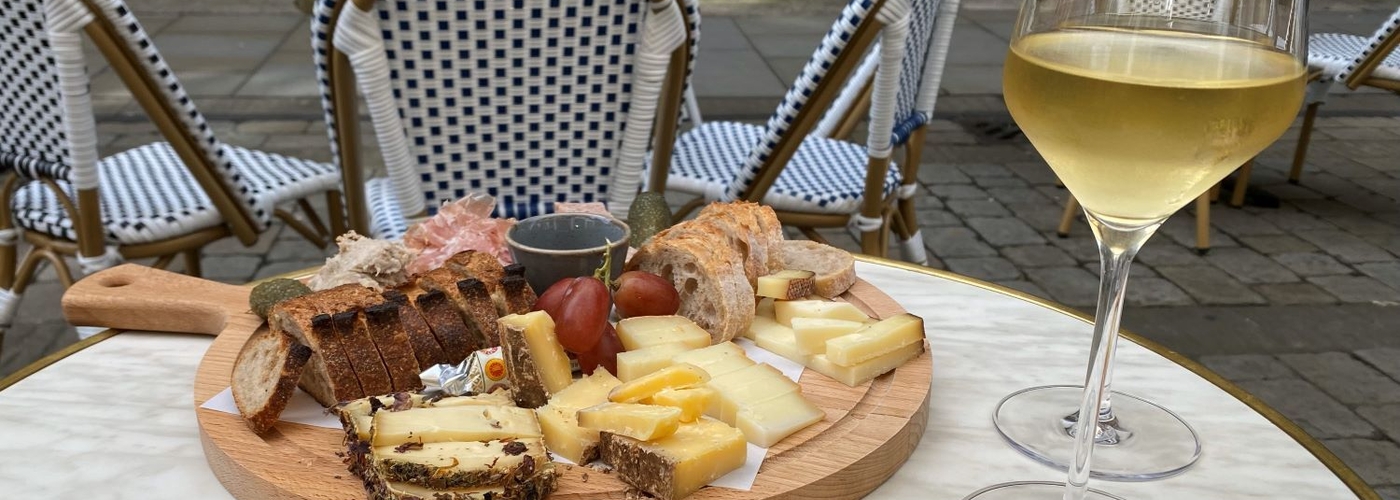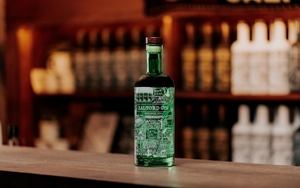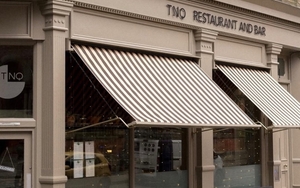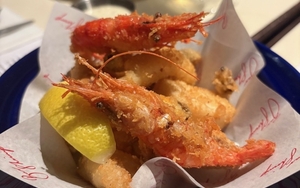Olivia Potts is missing her oysters tremendously
I’ve always liked a place that knows itself, and reflects that in its menu: a compact wine list, a clutch of puddings, or a single cocktail recommended as a sharpener, I simply love a limited menu. There’s no hedging, no fannying about, no overwhelm. Tell me what you do, tell me what’s good, and I will happily listen.
Look, supply issues happen. But if those issues impact half of your menu, and the basis of most of your advertising, it’s trickier to reconcile
The menu at Petit Paris – a French delicatessen on King Street – is just this sort of thing. Their deli offerings are a cornucopia of continental imports, tins of confit, jars of jams, bars of chocolate, and little packets of pralines, with one wall dedicated to their wines, and another, glass-fronted, to huge wheels and truckles of cheese, big joints of cured meat and hanging sausages.
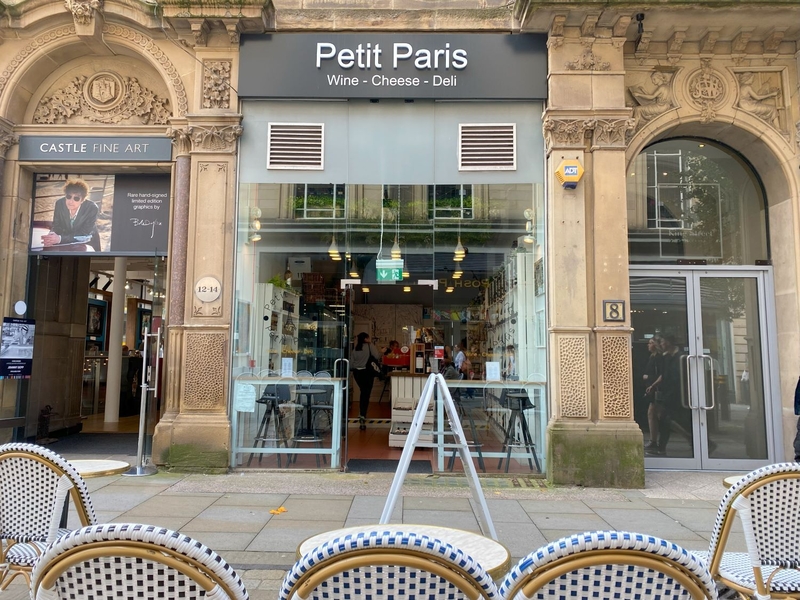
But the menu they serve is far simpler. There are two types of oyster (Gillardeau and Josephine), available by the dozen or half dozen, and then a choice of a cheese platter for 2 or 4 people, or a charcuterie and cheese platter for 2 or 4. There’s a handful of wines by the glass, but that’s it. I don’t need much inducement to order oysters, a glass of champagne and some cheese, but there being little choice in the matter is a welcome excuse.
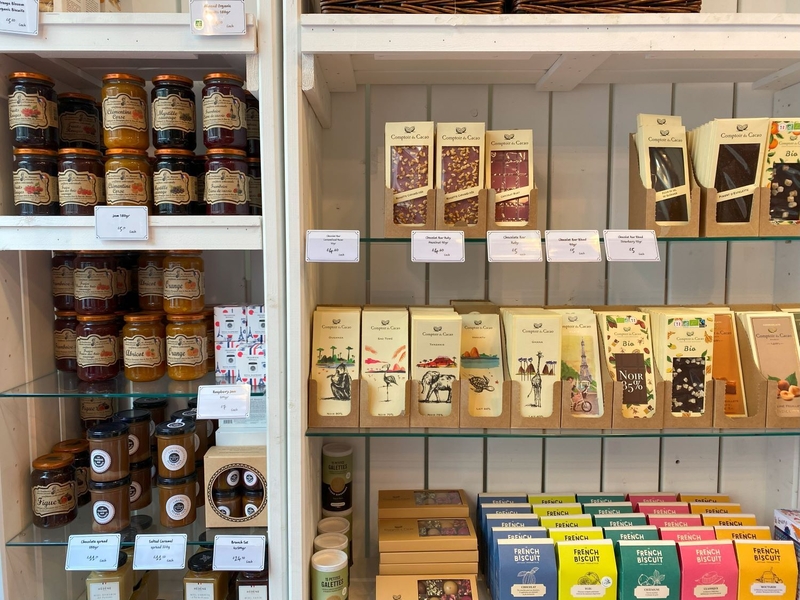
It’s a strong menu, full of character and confidence. But what is often a strength can quickly become a weakness, as we discovered. We decide to try both the oysters – and go for the suggested match of a glass of Muscadet – and get a cheese and charcuterie platter to share between the two of us.
Moments later, we’re informed there aren’t any oysters. Not that we couldn’t split our half dozen between the two varieties, as we’d cheekily asked. Not that they were out of one type of oyster. No oysters at all. On a Saturday, at the very beginning of lunch service. As much of a surprise to the service staff as to us.
Look, supply issues happen. It’s not the end of the world. Nobody dies. But if those issues impact half of your menu, and the basis of most of your advertising, it’s trickier to reconcile. If you can’t get oysters, you need to get in front of it. It shouldn’t be something that is a surprise, a follow-up to order-taking – and perhaps it’s even a situation where you choose, on this particular occasion, to offer something else from your beautiful shelves.
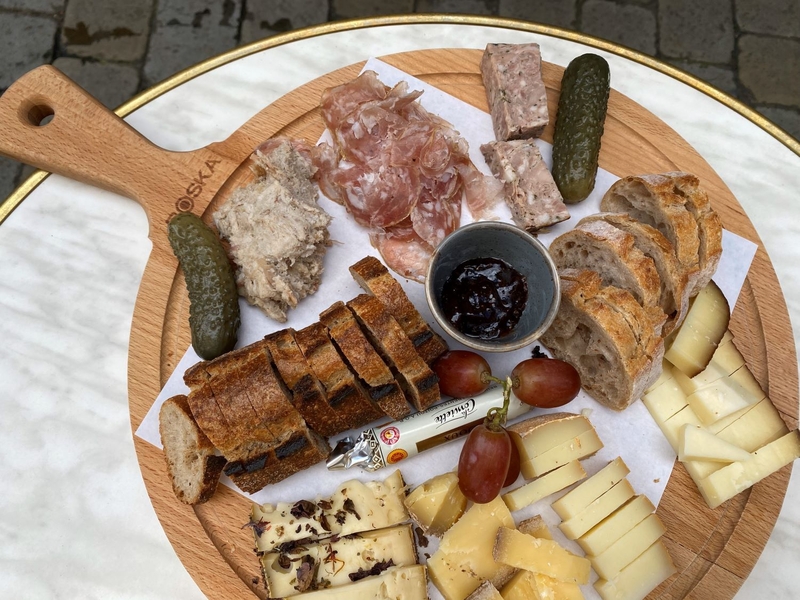
So, what of the cheese and charcuterie platter? There’s a firm tomme de brebis, a sheep’s cheese, which is creamy, almost waxy, and sweetly nutty. An esquirrou, another hard sheep’s cheese with an amber rind, is rich and toasty, with a supple texture like a young comté. The Tomme aux Fleur Sauvage, an Alsatian cow’s cheese, has a buttery, pocked texture, and is crusted in a host of herbs and wildflower petals. It’s pretty as a picture, with notes of hay, which makes it almost smokey, and completely delicious.
But it’s the Comté – ever popular in the UK, but sometimes a little underwhelming – which is an easy stand-out. Aged for 30 months it is brilliantly savoury with a winey tang that pricks at the back of your mouth. It’s dense, crystalline, a world away from the stuff you find in the supermarkets.
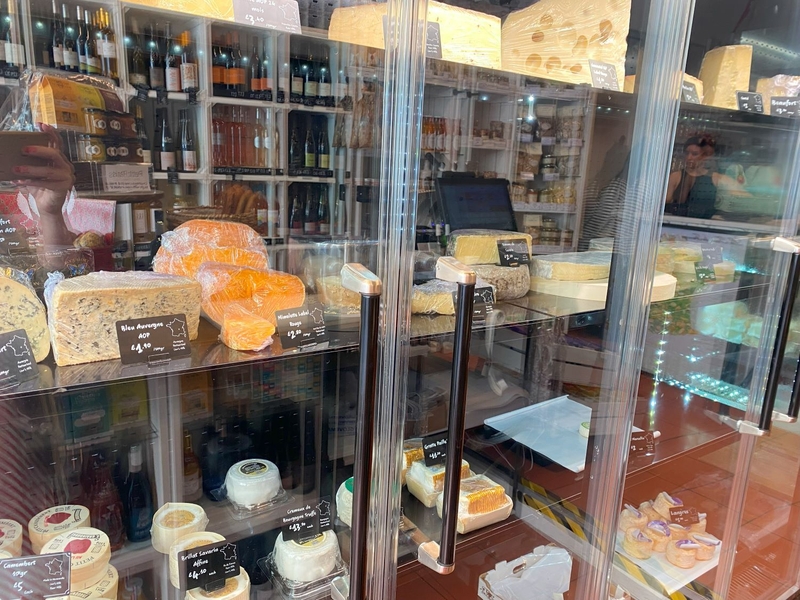
A heap of ballet slipper-pink slices of rosette saucisson are tissue thin, garlicky and sweet, melting as you eat them. The pork rillette is textbook: fatty, sticky, and deeply, deeply porky, crying out to be smeared on the nearest edible flat surface. The rabbit pâté is particularly great: it’s chunky without being coarse, gutsy and extremely French.
The fig compote which accompanies it all is umber dark, almost boozey; the perfect foil to the various constituents on the plate. We fight over a little silver twist of seriously good unsalted French butter, while a generous fan of good baguette and a couple of fat gherkins complete the platter. If I’m being picky, they could lose one of the harder cheeses for something oozy or rind-washed, and some thick saucisson would provide a different texture.
The wines – the Muscadet, and a glass of Chablis – are flinty, bright, crisp. The Muscadet is fresh, yellow-green, with hints of pear and apple, while the Chablis is saliney, mineral-heavy and moreish. Everything you would want alongside a platter of meat and cheeses (although, I can’t stop myself from thinking how well they’d both go with oysters).
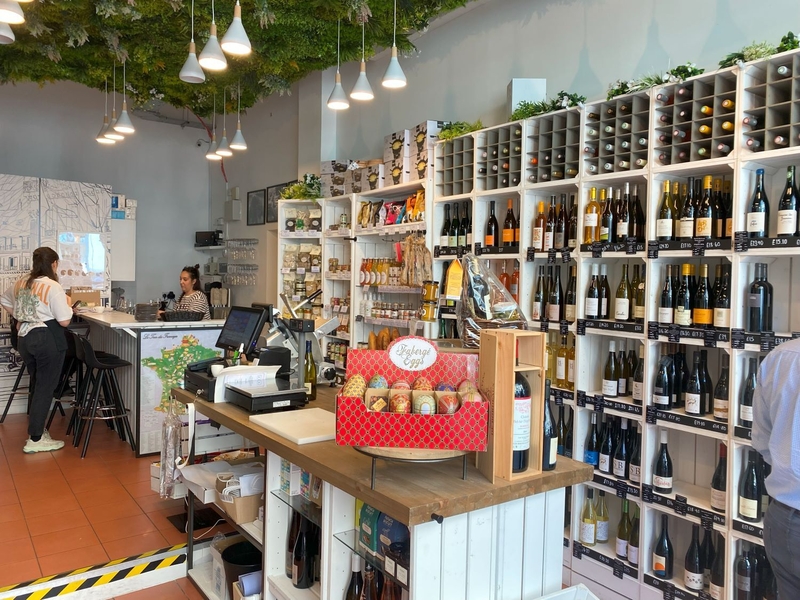
Petit Paris is a great deli, with really enjoyable platters, and a smart, zippy list of wines by the glass. It’s hard to review a place on one dish, even when it’s a composite and successful one; it’s even harder when there are only a couple of other options, and they’re simply not available. While I can judge the food – and judge it to be excellent – it would be disingenuous to ignore the impact the reduced menu has on the overall experience. You could still have a great meal at Hawksmoor if it had run out of steak, but it wouldn’t be the same, would it? Our time there was disappointing, but not least because it had such potential. But I’ll be back – if only to try the oysters which, by the way Jonathan Schofield says are superb, when available.
Petit Paris, 10 King St, Manchester M2 6AG
About the writer
Olivia won the Fortnum and Mason Debut Food Book of the Year in 2020, as well as Guild of Food Writers Food Writer of the year. She also writes Spectator Life's Vintage Chef column for The Spectator magazine. She has two books in print, A Half Baked Idea and Butter: A Celebration.
Follow Olivia on Twitter @OliviaFPotts or on Instagram @ahalfbakedidea
The scores
All scored reviews are unannounced, impartial, paid for by Confidentials and completely independent of any commercial relationship. They are a first-person account of one visit by one, knowledgeable restaurant reviewer and don't represent the company as a whole. If you want to see the receipt as proof this magazine paid for the meal then a copy will be available upon request.
Venues are rated against the best examples of their type: 1-5: saw your leg off and eat it, 6-9: Netflix and chill, 10-11: if you’re passing, 12-13: good, 14-15: very good, 16-17: excellent, 18-19: pure class, 20: cooked by God him/herself.
-
Food
Platter made up of numerous elements that were excellent quality
- Service
- Atmosphere





